Analysis and commentary on the Network’s experiences coordinating climate-resilient development.
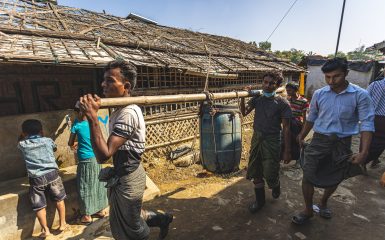
Building Peace and Climate Resilience: Aligning peacebuilding and climate adaptation in fragile states
By Alec Crawford and Anne Hammill (IISD); and Richard Matthew (University of California)
The converging crises of conflict and climate change can be mutually reinforcing, with climate impacts potentially exacerbating the conflict cycle and violence weakening the governance structures and institutions needed to build climate resilience.
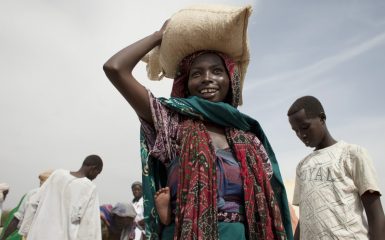
Changer les comportements pour faire progresser l’égalité des genres dans l’action climatique : L’exemple du Tchad
Par Julie Dekens, chercheuse principale, Institut International du Développement Durable (IIDD)
Pour assurer un processus de plan national d’adaptation (PNA) qui répond aux questions de genre, il est essentiel de bien connaître les acteurs de ce processus. En 2021, le Réseau mondial de PNA a travaillé avec le Ministère de l’Environnement au Tchad pour mieux comprendre ces dynamiques et en tirer des leçons pour le développement de son processus de PNA.

Behaviour Changes to Advance Gender Equality in Climate Action: The example of Chad
By Julie Dekens, Senior Researcher, International Institute for Sustainable Development (IISD)
To ensure a gender-responsive National Adaptation Plan (NAP) process, it is vital to gain a detailed understanding of the actors involved in the process by understanding not only their knowledge but also their attitudes and behaviour regarding gender equality in the area of climate action. In 2021, the NAP Global Network worked with Chad’s Ministry […]
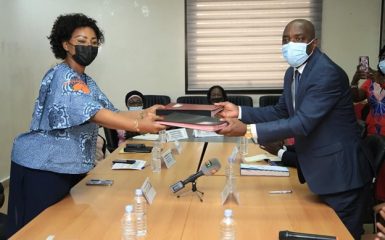
Comment la Côte d’Ivoire accélère la prise en compte du genre dans l’action climatique : la collaboration entre le ministère de l’Environnement et le ministère de la Femme
Un entretien de Julie Dekens avec Jean Douglas Anaman, coordinateur du processus de PNA au ministère de l’Environnement et du Développement Durable.
Nous nous sommes entretenus avec Jean Douglas Anaman, coordinateur du processus de PNA au ministère de l’Environnement et du Développement Durable pour mieux comprendre comment la Côte d’Ivoire a accéléré la collaboration entre les deux ministères, notamment afin d’améliorer son processus de PNA.

How Côte d’Ivoire is Accelerating Gender Mainstreaming in Climate Change Action: Collaboration between the Ministry of the Environment and the Ministry of Women
An interview by Julie Dekens with Jean Douglas Anaman, NAP process coordinator at the Ministry of the Environment and Sustainable Development
We had a conversation with Jean Douglas Anaman, NAP process coordinator at the Ministry of the Environment and Sustainable Development, to gain a better understanding of how Côte d’Ivoire has accelerated the collaboration between the two ministries, with the aim of improving its NAP process.
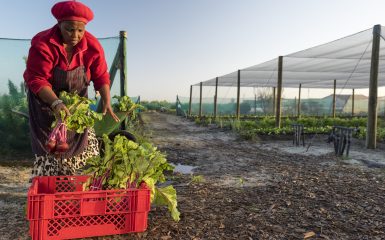
A Great Year for National Adaptation Planning and the Network to Watch in 2022
A new sense of urgency for climate action is being felt all around the world. While reflecting on this year’s progress in our work, it’s clear that the momentum being built for climate action will continue into the new year and NAPs will have a big role to play.
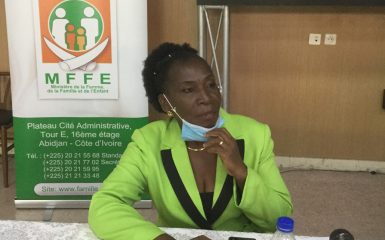
Comment la Côte d’Ivoire accélère la prise en compte du genre dans l’action climatique : le renforcement des capacités des acteurs nationaux
Un entretien de Julie Dekens avec Florence Tanoh, directrice du genre et de l'équité au ministère de la Femme de Côte d'Ivoire.
Nous nous sommes entretenus avec Florence Tanoh, Directrice du Genre et de l’Équité au sein du ministère de la Femme pour mieux comprendre comment le renforcement des capacités contribue à améliorer la prise en compte des liens entre le genre et les changements climatiques.

How Côte d’Ivoire Is Accelerating Gender Mainstreaming in Climate Change Action: Building the capacities of national actors
An interview by Julie Dekens with Florence Tanoh, Director of Gender and Equity at Côte d’Ivoire's Ministry of Women
A conversation with Florence Tanoh, Director of Gender and Equity at Côte d’Ivoire’s Ministry of Women, on how capacity building helps to take better account of the linkages between gender and climate change.

Simplicity in Crafting Effective Monitoring, Evaluation, and Learning Systems for National Climate Adaptation
By Julie Dekens, Senior Researcher, International Institute for Sustainable Development (IISD)
At the NAP Global Network, we have observed that while MEL systems look different in various contexts, they should all carry one essential characteristic to be considered in the early development stages: simplicity matters.
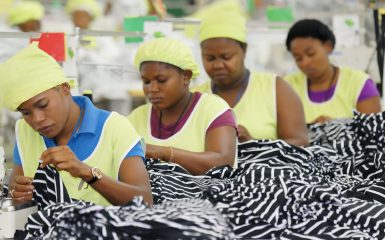
La société civile et le secteur privé, deux partenaires incontournables dans la réussite du processus de PNA d’Haïti
Par Patrick Saint-Pré, Consultant en communication
Au cours des 20 dernières années, Haïti a été l’un des trois pays les plus touchés par les épisodes météorologiques extrêmes, qui risquent d’augmenter compte tenu du rythme actuel du réchauffement climatique. Pour tenter de résoudre cette situation, Haïti a lancé un processus PAN en août 2019 afin de renforcer la résilience des secteurs économiques stratégiques du pays.

Civil Society and the Private Sector: Two essential partners for a successful NAP process in Haiti
By Patrick Saint-Pré, Communications Consultant
Over the past 20 years, Haiti has been one of the three countries most affected by extreme weather events, which are likely to increase given the current rate of global warming. In an attempt to resolve this situation, Haiti launched a NAP process in August 2019 to increase the resilience of the country’s strategic economic sectors.
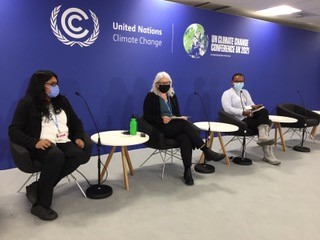
NAP GN at COP26 | Testing the Theory: Building capacity for vertical integration of adaptation
COP26 side event at the Paris Committee on Capacity Building’s (PCCB) 3rd Capacity-building Hub
This session, led by the NAP Global Network, explored the real-world challenges involved in strategically linking adaptation efforts across various levels of governance, including through collaboration with non-state actors.